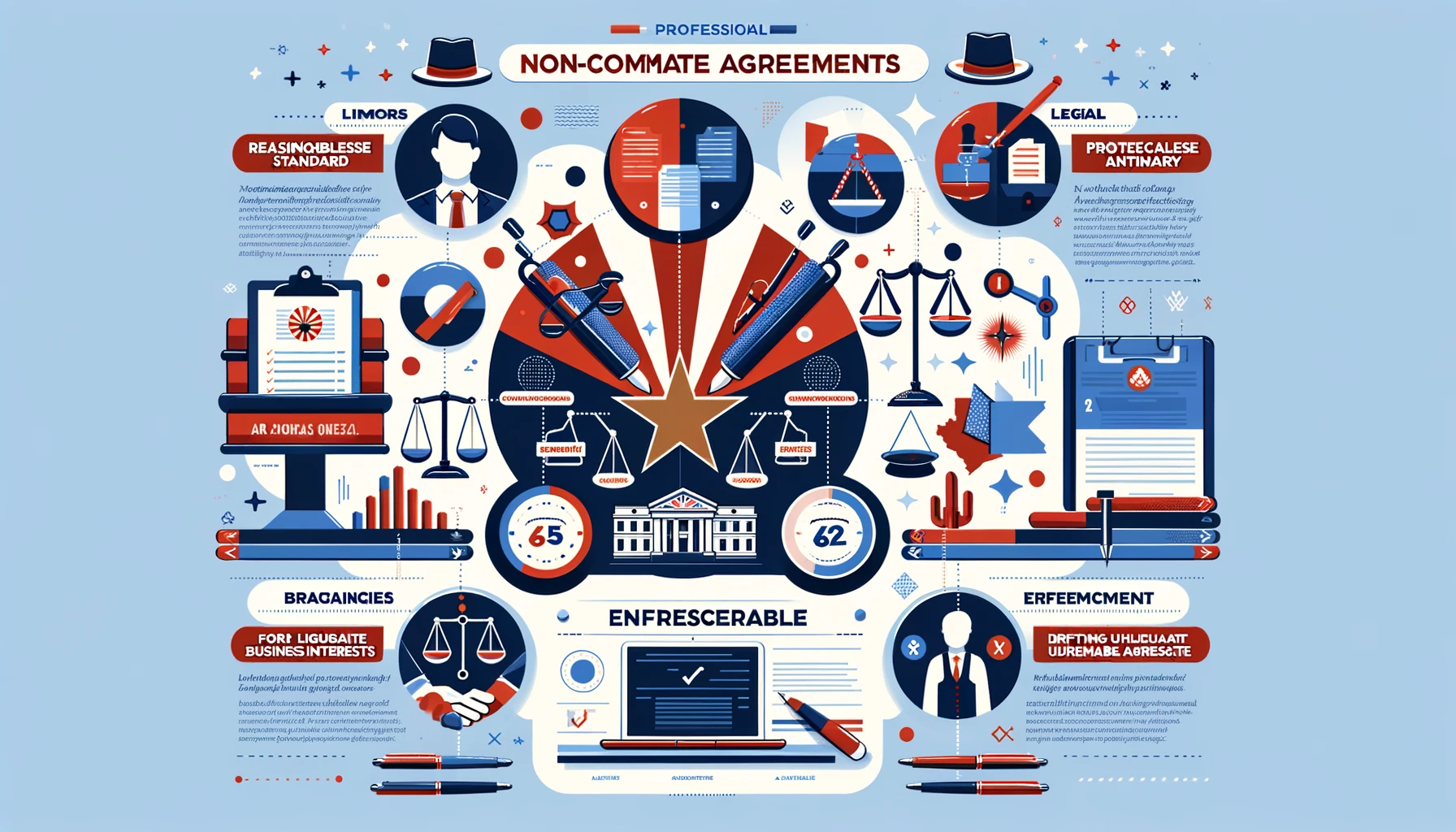Understanding Non-Compete Agreements in Arizona: A Legal Perspective
In the evolving landscape of employment law, non-compete agreements stand as a pivotal element in protecting business interests while balancing employee rights. Particularly in Arizona, the enforcement and validity of non-compete clauses are subject to specific legal standards and judicial scrutiny. This comprehensive guide delves into the nuances of non-compete agreements in Arizona, offering essential insights for employers and employees alike, backed by authoritative .gov, .edu, and Wikipedia resources.

Introduction
Non-compete agreements, also known as covenants not to compete, are legal contracts that restrict employees from engaging in competitive activities against their employers after their employment period ends. In Arizona, as in many states, these agreements are enforceable to a certain extent to protect legitimate business interests. However, they must be carefully drafted to ensure they are not overly restrictive and thus invalid.
Understanding Non-Compete Agreements in Arizona
The Arizona Revised Statutes and case law set forth specific criteria for the enforceability of non-compete agreements. Employers seeking to implement these agreements must understand these legal benchmarks to ensure their non-compete clauses are both protective and enforceable.
For more detailed legal frameworks, the Arizona State Legislature provides a searchable database of state laws, including those relevant to employment and non-compete agreements.
Key Legal Principles Governing Non-Compete Agreements in Arizona
1. Reasonableness Standard
Non-compete agreements in Arizona are subject to a "reasonableness" standard. This encompasses the scope, geographical area, and duration of the restrictions. The Arizona Judicial Branch offers insights into how courts interpret these factors.
2. Protection of Legitimate Business Interests
The primary purpose of a non-compete agreement must be to protect legitimate business interests, such as trade secrets, confidential information, or customer relationships. Arbitrary restrictions lacking this foundation are likely to be deemed unenforceable.
3. Balancing Against Public Policy
Arizona courts balance the enforcement of non-compete agreements against public policy interests, ensuring that such agreements do not unduly restrict an individual's right to work and earn a livelihood.
For a deeper understanding of these considerations, the Sandra Day O'Connor College of Law at Arizona State University offers resources and publications on employment law and non-compete agreements.
Drafting Enforceable Non-Compete Agreements in Arizona
1. Clearly Define Restricted Activities
The agreement should specify what constitutes competitive activities. Vague or overly broad definitions are more likely to be challenged.
2. Set Reasonable Geographical Limits
The geographical scope of restrictions should be limited to areas where the employer conducts business and has legitimate interests to protect.
3. Limit the Duration
Non-compete agreements should last only as long as necessary to protect the employer's interests. Excessive durations can render the agreement unenforceable.
4. Consideration for the Agreement
For a non-compete agreement to be enforceable, the employee must receive something of value in return, such as employment, promotion, or other benefits.
The U.S. Small Business Administration (SBA) provides guidance on employment agreements and considerations.
Legal Challenges and Enforcement
1. Judicial Remedies
If a non-compete agreement is violated, employers may seek injunctive relief or damages. The enforceability of such actions depends on the agreement's compliance with legal standards.
2. Dispute Resolution
Parties are encouraged to include dispute resolution clauses in their agreements, specifying arbitration or mediation as alternatives to litigation.

Create & Review Your Contracts 10x Quality and Ease
Lawyer-level AI handles all your contract needs, with real lawyers providing safeguarding support

Conclusion
Non-compete agreements in Arizona serve as a crucial tool for businesses seeking to protect their interests, yet they must be crafted with precision to ensure enforceability. Employers and employees must navigate these legal waters carefully, considering the balance between protection of business interests and the rights of individuals to work. Consulting with legal professionals experienced in Arizona employment law is essential to drafting, understanding, and enforcing non-compete agreements. For further reading on this subject, authoritative resources such as the Arizona Department of Labor offer additional insights into employment practices and regulations.

